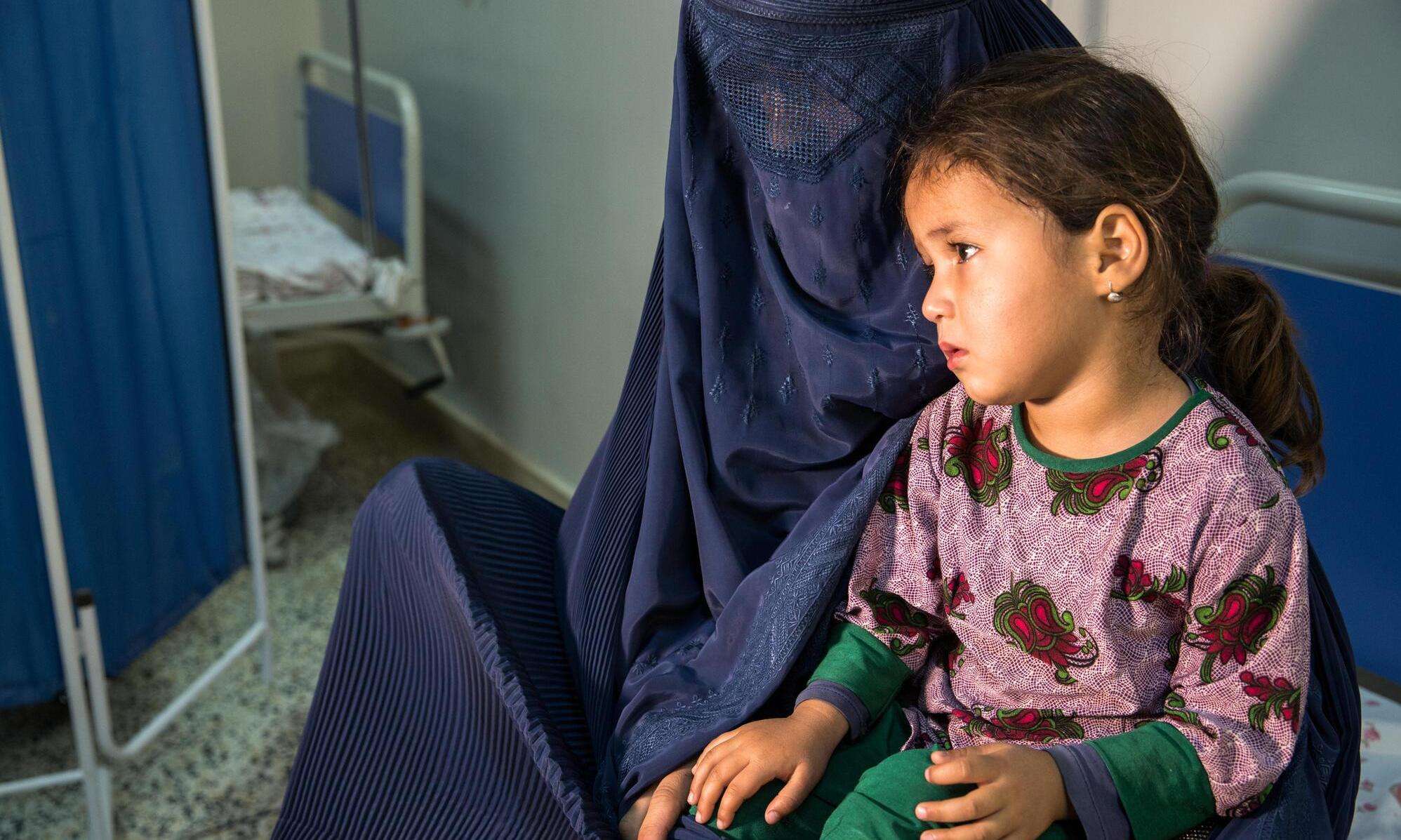When I left Portugal in late September to go on assignment with MSF, I was concerned about the environment in Afghanistan, and how life was in this mountainous country in the heart of Asia. Having previously worked with MSF in South Sudan and Yemen, I had witnessed firsthand the transformative impact of our activities. Yet, the tales and experiences awaiting me in Afghanistan reignited the passion within my heart, reminding me of the profound joy and purpose I found as a pediatrician at MSF.
At Mazar-i-Sharif Regional Hospital in Balkh province in northern Afghanistan, I have witnessed the incredible strength and resilience of the families and children who come through our doors. One inspiring story is that of 22-year-old Shekiba* and her daughter, Atoosa.*
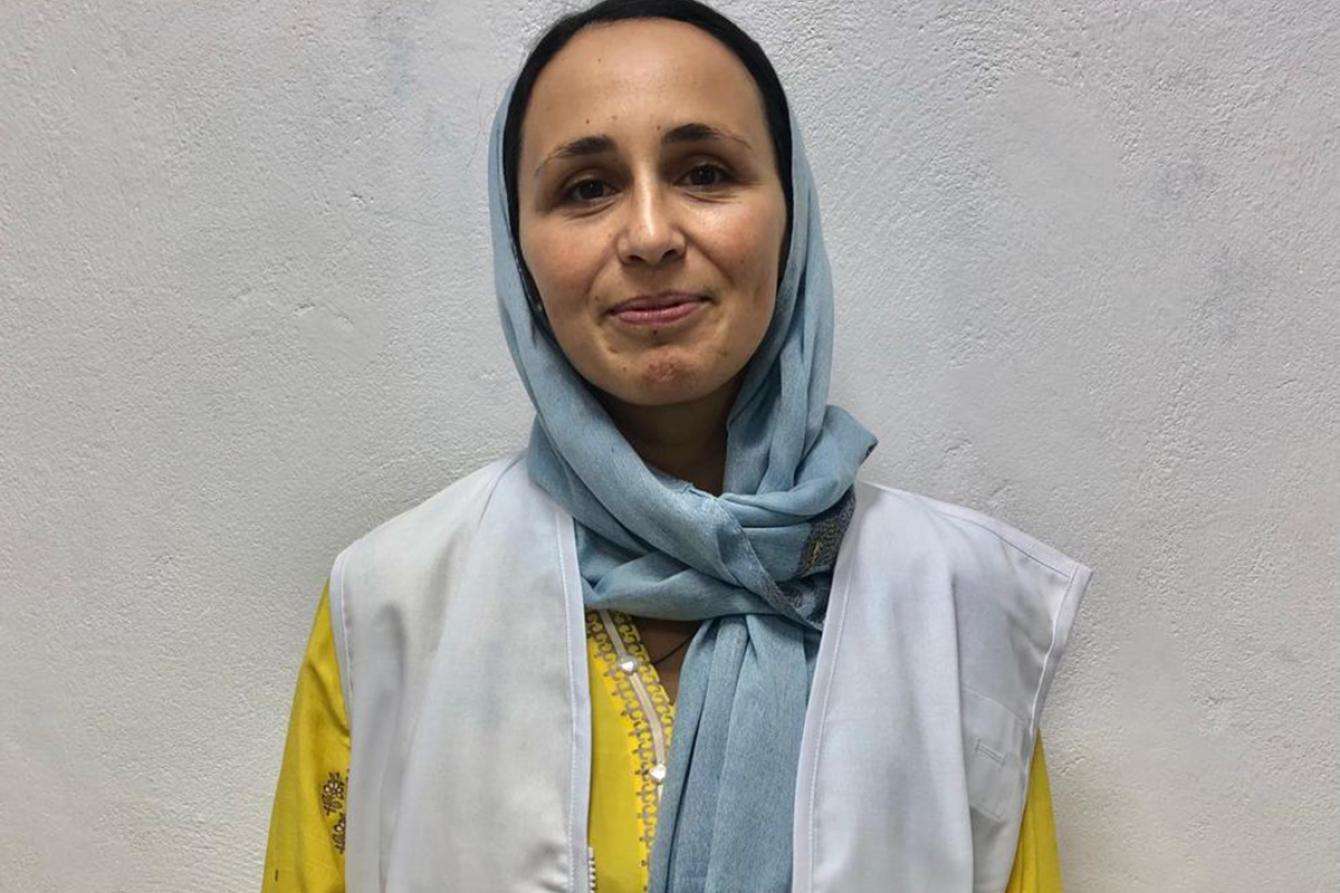
Getting to know Shekiba
Shekiba, a proud mother from Chimtal District—about an hour's drive from Mazar-i-Sharif hospital—embarked on a challenging journey. She gave birth to her precious daughter, Atoosa, prematurely at just 28 weeks at Mazar-i-Sharif Regional Hospital’s maternity ward, which is run by the Ministry of Public Health. Atoosa's arrival at a mere 1.2 kilograms [about 2.6 lbs] marked the beginning of a long and arduous battle for survival. Due to her very low birth weight and physical condition, she was referred for admission to the Neonatal Intensive Care Unit (NICU), which MSF supports at the hospital.
Premature newborns must undergo long periods of hospitalization that can be extremely disruptive for their families. In Mazar-i-Sharif, being a regional hospital, we receive premature and sick newborns from various districts and towns across northern Afghanistan. Many mothers stay alone with their baby in hospital for long weeks, far from their families and homes. At Mazar-i-Sharif, we admit newborns delivered inside the maternity ward of the facility as well as those referred from other health facilities in the northern provinces of Afghanistan.
What drew me to Shekiba was that she was among the first mothers whose babies we admitted to the NICU. She spent a long time at the hospital, giving us a lot of time to build a bond. For two months, she spent every waking moment looking at her baby, sometimes finding it hard to sleep. The agony of seeing your baby on life support and not knowing whether they will pull through can really weigh someone down, and Shekiba would sometimes feel dejected, breaking down into tears. But in those moments of despair, fellow mothers, nurses, and doctors gave her emotional support.
With the help of a medical translator who supports me at work, I tried to speak to Shekiba during my breaks and got to know her better. She told me her joy and struggles, and how life was for her growing up with nine siblings at home in Chimtal. It was also there that she met her husband and decided to have a family. We formed a bond that strengthened as she stayed longer in the hospital. She would ask me how soon her daughter would be discharged from her incubator, which she had now shared with another baby for weeks, but more often than not, I didn’t have the news she wanted to hear.
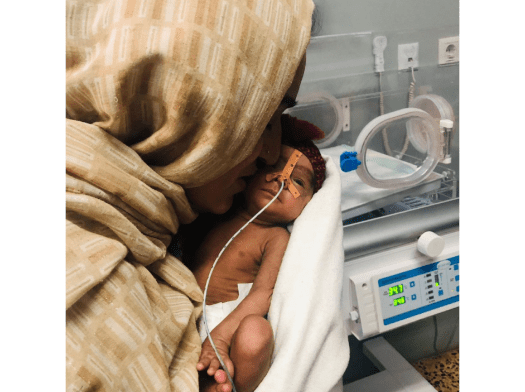
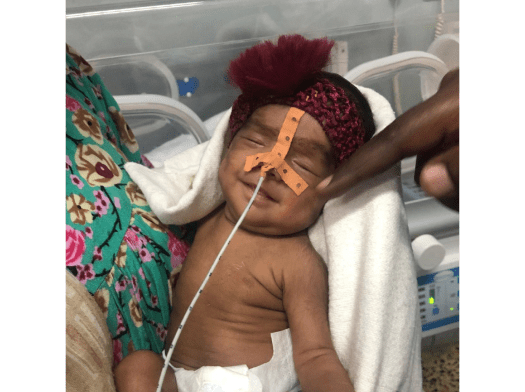
A premature baby at Mazar-i-Sharif Hospital. Afghanistan 2023 © Oriane Zerah
A NICU for specialized care
The NICU is a dedicated area equipped with specialized medical equipment and staff trained to provide care to very sick and premature babies in need of intensive care. The care provided in the NICU is tailored to the unique needs of newborns, often including support for preterm babies, those with low birthweight, perinatal problems, or congenital abnormalities.
The MSF-supported NICU at Mazar-i-Sharif Regional Hospital has consistently had more patients than bed capacity since its doors reopened to patients on the first day of October this year following extensive enhancements. Today, we have more than 60 children in the NICU, yet we only have space for 27. Because of this, many babies have had to share beds. This is not an ideal situation, but one we sometimes face in contexts where the needs are exceptionally high. At Mazar-i-Sharif, we admit about 540 infants in the NICU each month.
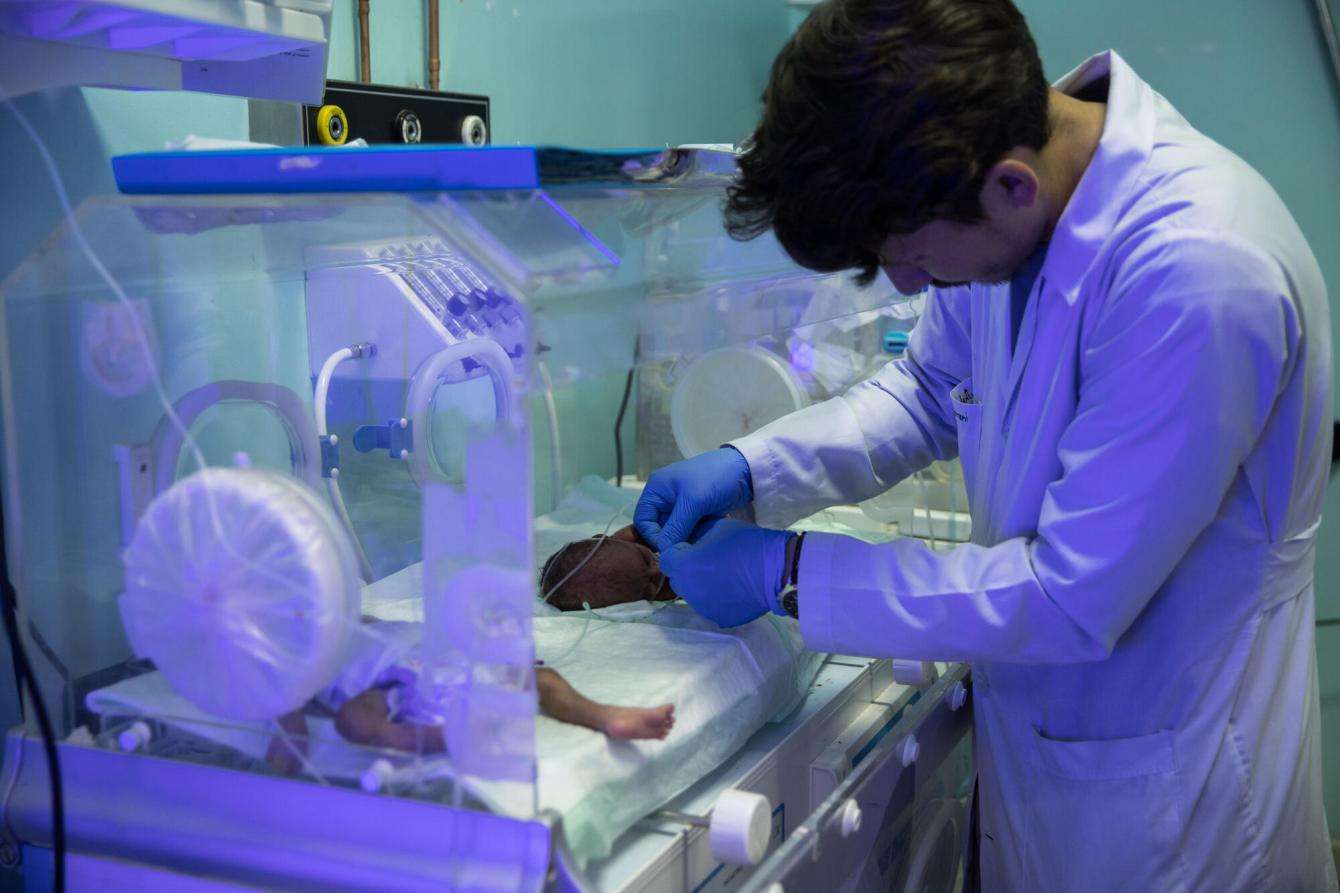
The day I gave the news to Shekiba that her baby was stable enough to be moved from the NICU to the prematurity ward, she couldn’t hide her joy. This was after staying in the NICU for a month. She whipped out her phone to make a call. The voice on the other line was her husband’s, the translator told me that Shekiba announced, “We will be leaving the hospital soon!”
She told me that whenever she gets sad, she holds her baby and feels better. She draws her strength from the love she holds for her daughter and the promise of a future filled with precious moments and cherished memories. “I can’t wait to comb her hair, make long braids, take her to school, and talk for hours.”
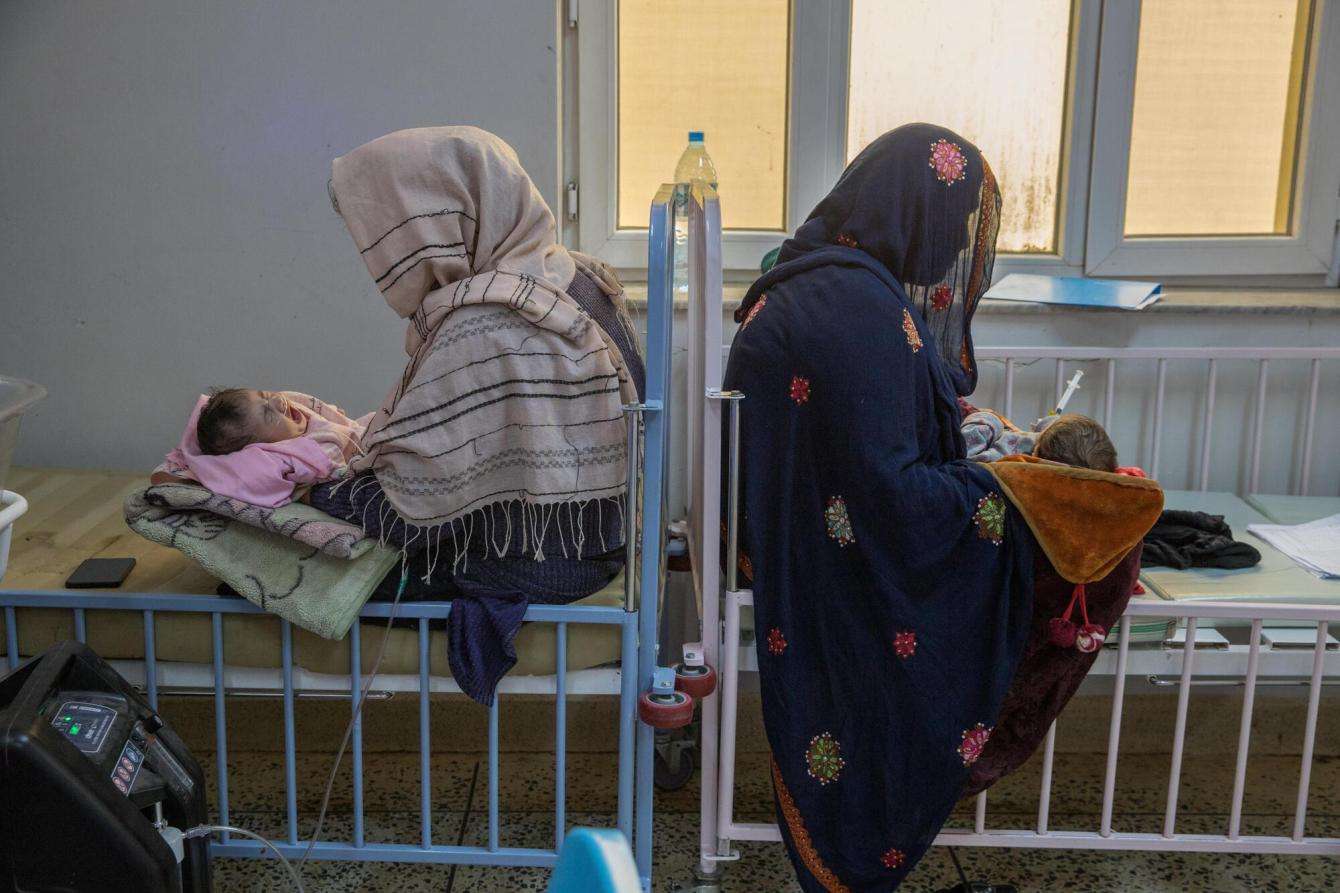
Support and solace for other mothers at Mazar-i-Sharif
Shekiba grew demonstrably stronger during her stay and took time to provide support and solace to other mothers facing similar challenges she did, instilling hope in them.
Today, Shekiba is leaving the hospital to go home, having only known its walls for two months. Baby Atoosa has reached significant milestones and is getting discharged at 2 kilograms (4.4 lbs). We shed some tears. We sent her home, hoping not to see her at the hospital soon, except for routine [visits].
Prematurity is one of the main causes of morbidity and mortality in newborns in Afghanistan, as in other low-income countries. I am constantly reminded of the critical importance of comprehensive medical care for premature newborns. These vulnerable infants require meticulous attention and specialized treatment, making our work in Mazar-i-Sharif vital in saving young lives.
The work we do in this hospital is not just a duty; it is enveloped in compassion and dedication. It is a commitment to providing the best possible care for every child, regardless of their background or circumstances.
It's a privilege to witness people’s determination to thrive, despite the odds stacked against them. The resilience of these children and their families amidst turmoil is a testament to the unbreakable human spirit.
